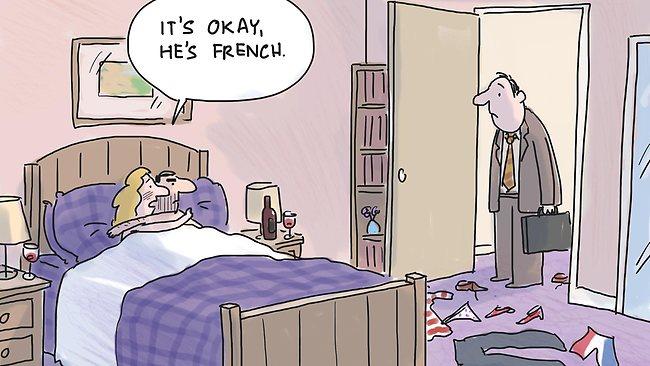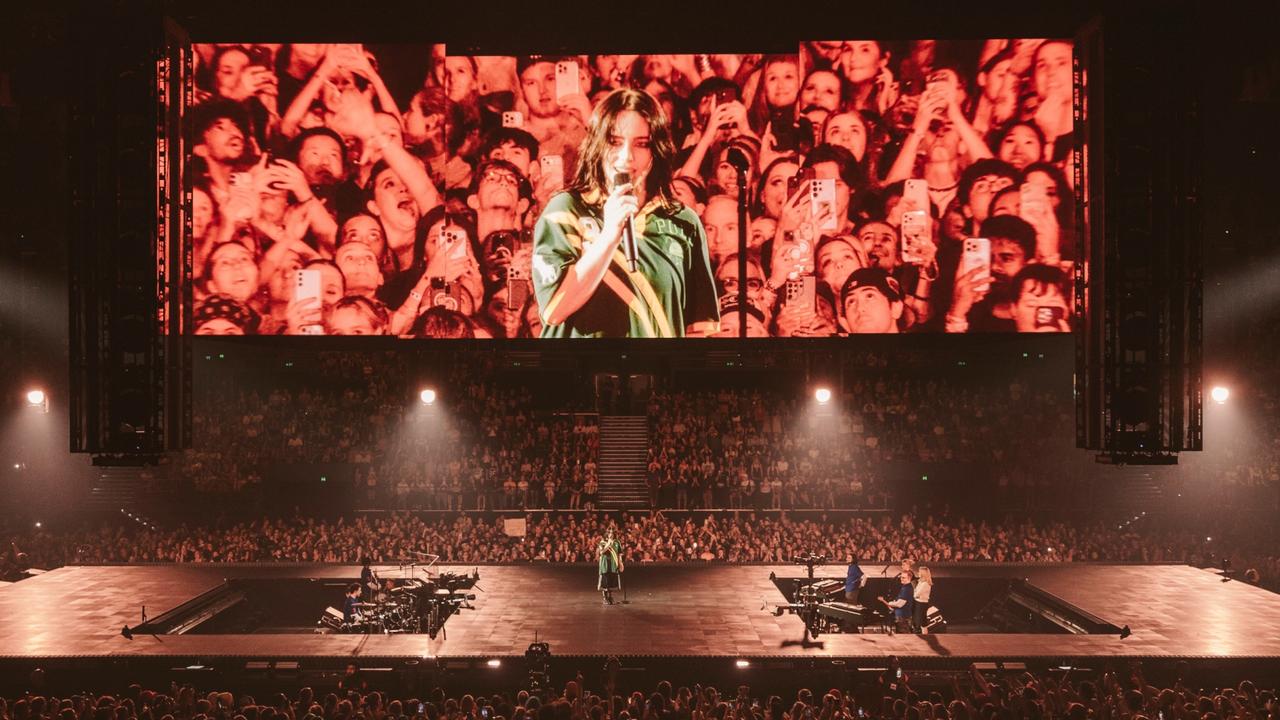How the French elevate sexual indiscretion to an art form
THE obligation to be faithful is a nagging imposition in French eyes - and an artistic obsession.

THIS month I'm back in France, where I did a chunk of my university studies, for the first time in 10 years.
But this time it's for pleasure. I'm going back to see friends and, by way of freshening up my French and reconnecting with the country's culture, I've been bingeing on its latest films. Such concentrated viewing has proved a heady experience.
Recurrent themes emerge and chief among them is, as always, monogamy. The obligation to be faithful is a nagging imposition in French eyes - and an artistic obsession. In film, as in much of French literature, a meditation on some aspect of monogamy is a key plot device or at least a sub-theme.
The French are not alone in this, of course. Other cultures explore the subject but few do it with the enthusiasm of the French. "Fidelity, it's just an idea," says actress and director Agnes Jaoui in her comedy of manners, Under the Rainbow. "It doesn't hold up. People sleep with other people. That's how it is."
That may be so. But in this country of prominent feminist thinkers such as Simone de Beauvoir, who is celebrated in the upcoming biopic of her protege, Violette Leduc, it's curious how tolerant women are - at least in film - towards their men. It's assumed, often with little or no protest, that a man will stray, or that he has done so in the past.
And why is it that the men seem so acutely vulnerable to the temptation? Perhaps it's a tacit rebellion against Catholicism. Perhaps it's the agony of choice.
But there is, too, the fact all this anxiety about monogamy and fidelity is frequently tied to another phobia: the fear of ageing. In his comedy The Brats, veteran comic actor Alain Chabat plays a 50-something bourgeois dad bitter at the fact that after 30 years of marriage the pleasures of his youth are but fading memories. This is accentuated by the arrival of a son-in-law who reignites his weakness for music, pot and girls. Together they dump their long-suffering spouses and indulge all their suppressed bacchanalian impulses, which predictably involve much younger women.
For Chabat's character and countless other onscreen Frenchmen, monogamy looms as an act of deprivation. Chabat seems to be saying that to deny oneself the chance to exploit any romantic temptation is sacrilege. It's a pattern that extends to the corridors of power: former president Nicolas Sarkozy and his socialist successor Francois Hollande are both stars in their own marital soap operas, while former International Monetary Fund chief and presidential candidate Dominique Strauss-Kahn could have played a central role in Balzac's Comedie Humaine.
Perhaps these fears of missing out come from education. After all, from their tender years the French are nourished on a diet of introspective, romantico-philosophical literature. A country fed on Chateaubriand, Choderlos de Laclos and Proust, among others, is a country of romantics, not realists.
Yet when the roles are reversed - the older woman with a younger man, as it is in the romantic comedy It Boy - the woman doesn't revel; she worries what society will think. In this film, Virginie Efira plays a 40-year-old single mother and fashion magazine editor who is shoehorned by her boss into dating a man half her age in a bid to heighten her image and that of the mag.
Likewise, Fanny Ardant plays an older woman succumbing to a younger man's charms in Bright Days Ahead, while in On My Way Catherine Deneuve falls for a married businessman, who vows to divorce and marry her. But sure enough, it's left to Deneuve to discover that he's having an affair with, you guessed it, a much younger woman.
Perhaps it's fitting that the most-talked about film in France is a raw three-hour chronicle of a lesbian romance between two teenage girls, Blue is the Warmest Colour, directed by Abdellatif Kechiche.
Little wonder then that among these philandering men and betrayed women is another common prop in French film: the visit to the psychologist.


